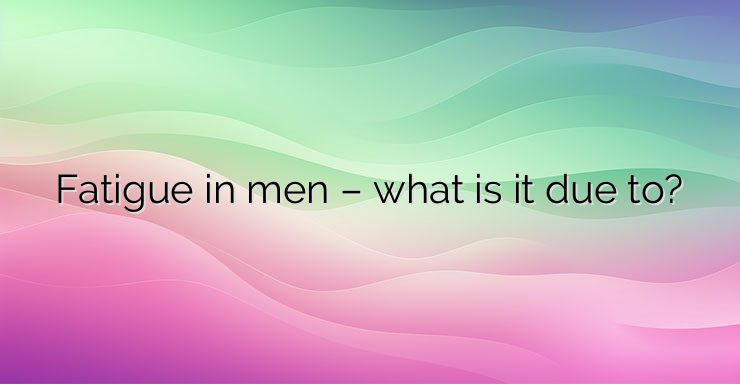Everyone has moments when they feel very tired. Persistent mental and physical fatigue and chronically low energy levels can be a sign of serious health problems. Men have a few different reasons why they may experience fatigue for more than a period of a few weeks. Men’s bodies gradually produce less testosterone as they age. Testosterone affects sexual activity, muscle mass and strength, bone density. A significant drop in testosterone levels can lead to decreased libido, increased body fat, decreased motivation, and sleep problems such as insomnia. These symptoms can contribute to chronic low energy and mental and physical fatigue. Hypothyroidism is a condition of reduced function (hypofunction) of the thyroid gland. Low thyroid hormone levels can wreak havoc on men’s energy levels. This condition can be caused by an autoimmune disease in which the immune system attacks the thyroid gland. Symptoms of hypothyroidism include – fatigue, sensitivity to cold, constipation, weight gain, muscle aches, dry skin, thinning hair, depression. Low thyroid hormone levels can lead to low testosterone levels. Treating hypothyroidism can improve fatigue as well as other symptoms. Hyperthyroidism, or an overactive thyroid gland, can also cause fatigue due to high blood pressure and sleep problems. Fatigue can be due to lack of sleep or poor quality sleep. The feeling of tiredness manifests itself in the absence of good sleeping habits, working at night or simply missing sleep when there is more work. Sleep apnea, in which you constantly disrupt your breathing, can also interfere with the quality of your sleep. Restless legs syndrome is another disorder that can negatively affect sleep. Fatigue can be due to depression, a psychological and physiological condition that can affect anyone. Fatigue can also be an important symptom of deeper health problems, which may include: Liver failure; Kidney failure; Heart disease; Crab; Chronic obstructive pulmonary disease (COPD); Diabetes type 1 and type 2; Chronic fatigue syndrome Bibliography: Gabrielsen JS, Najari BB, Alukal JP, Eisenberg ML Trends in testosterone prescription and public health concerns. Evans WJ, Lambert CP Physiological basis of fatigue.


Leave a Reply